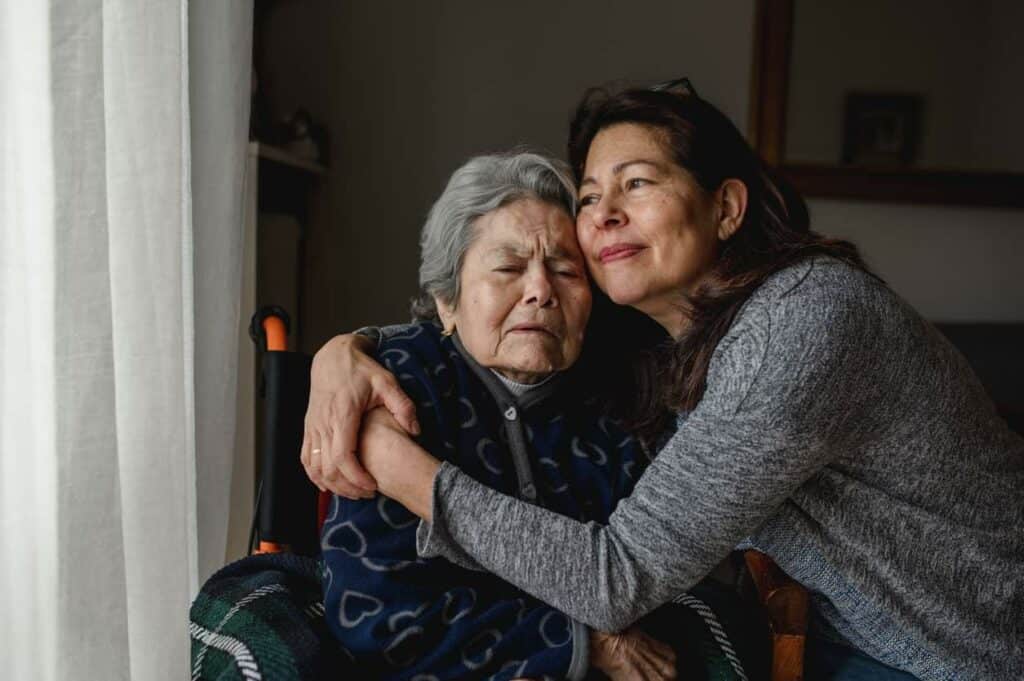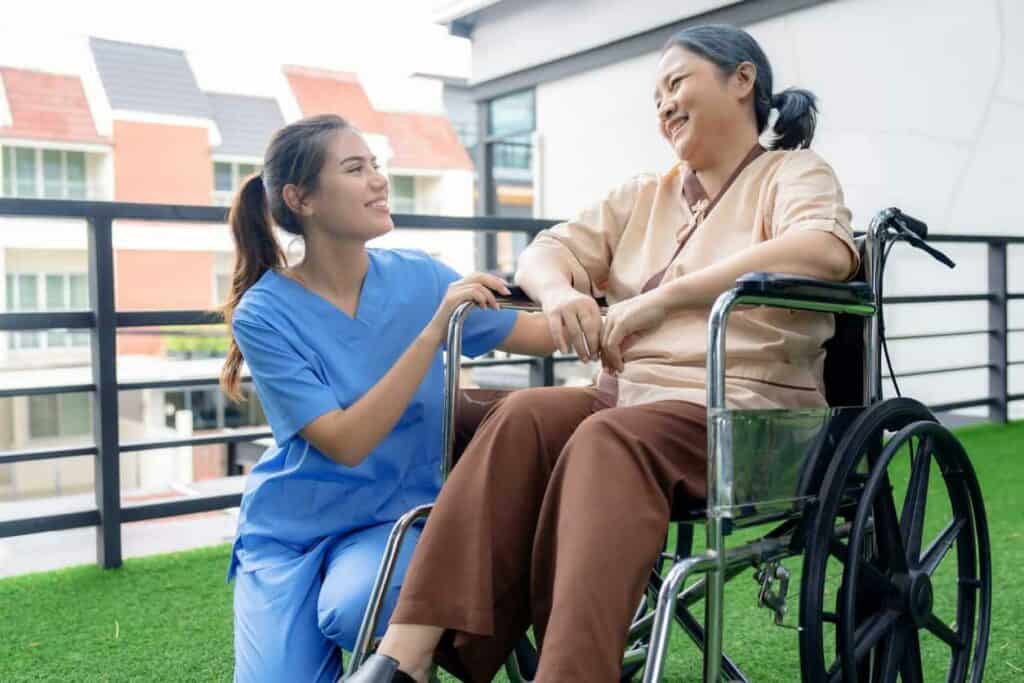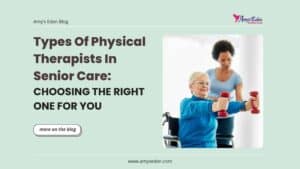
8 Memory Care Requirements That You Need to Consider Before Committing Your Loved One
Have you noticed a decline in cognitive and memory abilities as your loved one ages? In some individuals, this decline can be more pronounced, resulting
As a relative or friend, you want your senior to be healthy, happy, and able to enjoy life in their golden years.
But as you stand at the crossroads of caregiving choices, you might be worried about how the path you follow can impact the well-being and comfort of your elderly loved one.
You are looking for nothing but the best for your senior; an environment that ensures the most health, happiness, and dignity for them, and the sole concern in your mind is which is the ideal caregiving service to achieve this goal.

We want to help you by comparing two of the most popular choices: nursing homes and assisted living. This overview will be most useful if you’re not clear about the level of medical help your senior might need on an everyday basis.
Nursing homes, often referred to as skilled nursing facilities (SNFs), are residences that provide comprehensive, around-the-clock medical and personal care for people who require a higher level of care than what can be given at home or from standard caregiving services.
These facilities are primarily intended for seniors and other people with disabilities or medical conditions that need continuous supervision and medical attention.
Nursing homes offer a wide range of services, including skilled nursing care, medication management, assistance with activities of daily living (ADLs, such as bathing, dressing, and eating), physical therapy, occupational therapy, and other types of behavioral or psychological therapy.
On top of this, nursing facilities also provide a secure and supportive environment for residents with various healthcare needs, from chronic illnesses to post-surgery recovery.
Nursing homes are typically staffed by a team of healthcare professionals, including registered nurses, licensed practical nurses, certified nursing assistants, therapists, and medical doctors who oversee residents’ care plans.
In sum, nursing homes aim to enhance the quality of life for their residents by addressing their healthcare needs and ensuring a safe and comfortable living environment.

On the other hand, assisted living is a residential care option designed to provide elderly residents with a supportive and enriching environment for all areas of their lives.
Assisted living is a middle point between independent living and skilled nursing care. It’s an excellent choice for seniors who need assistance with daily activities and basic medical assistance but still want to keep a good degree of independence and enjoy a fulfilling lifestyle.
In assisted living communities, residents typically reside in private or semi-private apartments or rooms, which offer varying levels of privacy and personalization.
Trained caregivers are available 24/7 to support ADLs such as bathing, toileting, dressing, grooming, and medication management. This assistance is provided in a respectful and dignified manner, promoting autonomy and choice.
Assisted living also offers a range of amenities and services tailored to residents’ needs and preferences. These often include meal services, housekeeping, transportation, social activities, fitness programs, and access to healthcare services when needed.
Summing up, assisted living is an option that emphasizes quality of life, companionship, and maintaining a sense of purpose during the later stages of life. The goal is to create a vibrant, socially engaging, and safe environment where seniors can age gracefully while receiving the care they need in all aspects.

Both nursing homes and assisted living communities are excellent choices for senior care, however, they differ significantly in terms of services and the type of care they put their focus on.
The key to choosing the best alternative for your loved one is understanding their relevant differences so you can make an informed decision based on your senior’s needs and preferences.
Nursing Homes: These facilities offer a high level of medical supervision and care. They are ideal for seniors with complex medical conditions, chronic illnesses, or those who require extensive assistance with activities of daily living (ADLs) such as bathing, dressing, and feeding.
Assisted Living: This option offers a more supportive, less medical-centered environment, with a broader scope for care that also considers the entertainment and socialization of their elderly residents. It is more suitable for seniors who may require assistance with ADLs but do not need constant medical supervision.
Nursing Homes: Because of their focus on healthcare, skilled nursing facilities have a team of medical professionals, including registered nurses, licensed practical nurses, and physicians, who provide specialized care and rehabilitation services.

Assisted Living: They generally have trained caregivers who can assist with medication management and basic medical needs, they normally do not have as many on-site medical staff as nursing homes.
Nursing Homes: Residents in nursing facilities often have more severe health issues, which may limit their independence. Care is structured and focused on medical needs.
Assisted Living: Assisted living emphasizes maintaining as much independence and personal choice as possible. Residents in these communities have more control over their daily routines and enjoy a more homelike atmosphere.
Nursing Homes: While they may offer a few recreational activities, the primary focus in nursing homes is on medical care rather than social activities or lifestyle amenities.
Assisted Living: These communities offer a wider range of amenities such as dining services, social and recreational activities, fitness programs, outings, and transportation services, promoting an engaging and social environment.

Nursing Homes: Nursing homes are typically more expensive than assisted living as a result of the higher level of medical care offered.
Assisted Living: Assisted living is generally more affordable, making it a cost-effective option for seniors who do not require intensive medical care.
Amy’s Eden has been tending to the needs of Nevada’s beloved seniors for more than 15 years, and we provide versatile alternatives to traditional assisted living or nursing homes.
We have a unique caregiving model that allows us to focus on only one or two seniors in any of our care modalities, giving us the flexibility to offer different forms of care.
For example, our homey assisted living residences host only 2 seniors at once, which have trained, certified, and dedicated staff 24/7 taking care of all their needs. That way, if your beloved senior has a particular medical need that’s not covered by traditional assisted living communities, our capable and certified staff might be able to take care of it.

We also provide a range of special care services tailored to the necessities of elderly people with different health conditions. We have care modalities that go from personalized assisted living to in-home care, post-operative care, chronic condition management, dementia care, as well as many others.
Please, contact us, and let’s talk about all our range of services so we can find the best fit for your loved one’s preferences and particular health needs.
Learn more: Independent Living vs. Assisted Living, Which is the Ideal Fit For My Loved One?
Get care >

Have you noticed a decline in cognitive and memory abilities as your loved one ages? In some individuals, this decline can be more pronounced, resulting

When we think about healthcare for seniors, we might not think of sports therapists. They usually work with athletes and help them stay fit. However,

Are you considering physical therapy as a career option? Sometimes, you may or may not know what to expect once you become a certified physical

Do you find it harder to move around like you used to? Is chronic pain affecting your daily activities and overall quality of life? Do
